Do Hiroshima residents even want an apology?
- Published
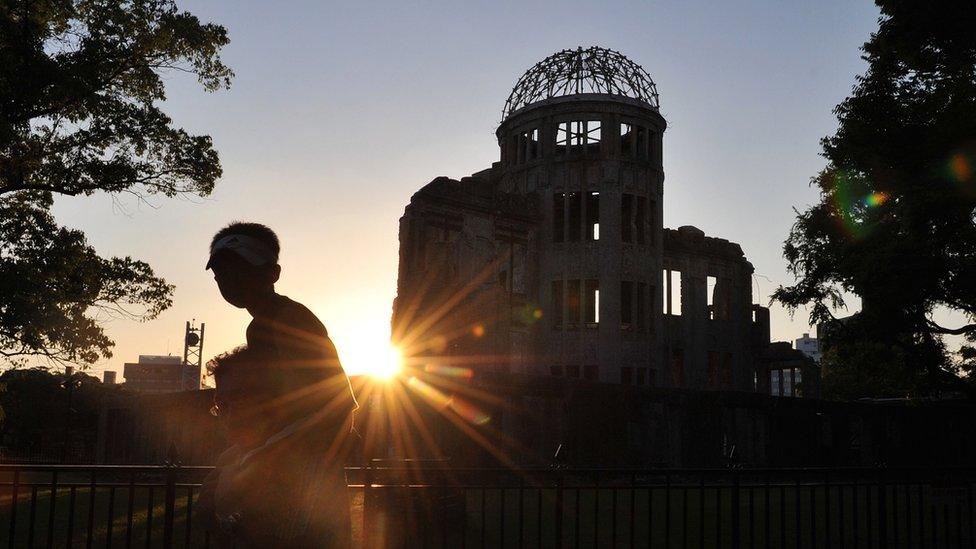
US President Barack Obama has made it clear he will not be apologising for the atomic bombing of Hiroshima, when he visits this week. But are Japanese people even asking him to? The BBC's Mariko Oi reports from the city.
"Rest in Peace, for the error shall not be repeated."
The words, engraved on the monument of the Hiroshima Peace Memorial Park, do not specify who made "the error".
But when I first visited as a teenager, I read it as we, Japan, shall not repeat the errors of war that led to the US dropping the world's first nuclear bomb on the city on 6 August 1945.
I was surprised by the stark contrast to some other war museums, where the aggressor is criticised.
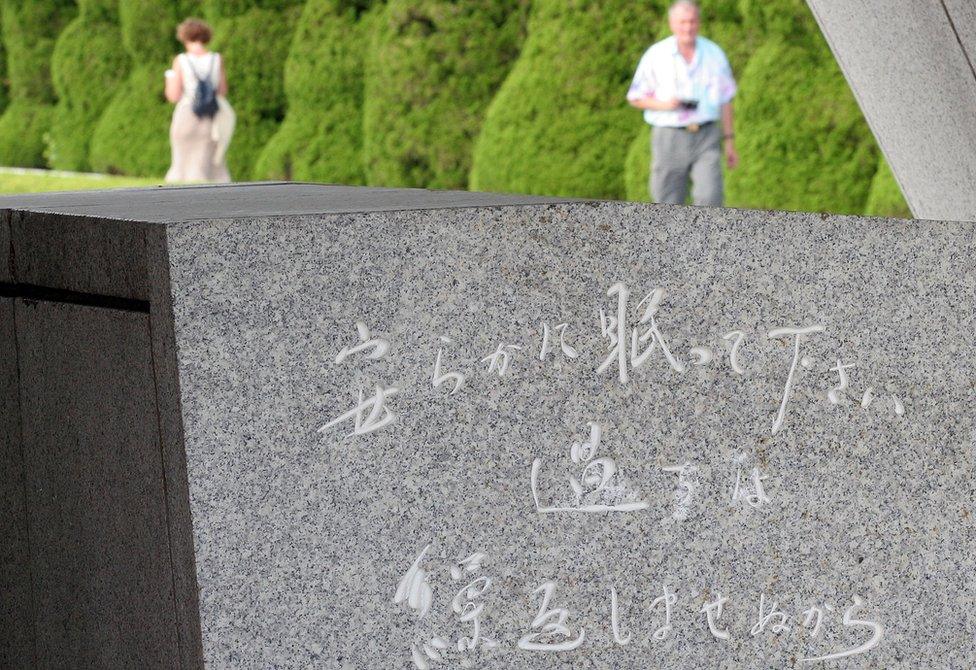
Inscription on the Hiroshima Peace Memorial saying: "In peace let the souls rest here as we will never repeat this mistake"
The destructions of Hiroshima and Nagasaki have long been justified, especially in the US, as actions which prevented World War Two from continuing. At that time President Harry Truman repeatedly said the bombs ultimately saved lives.
The official stance of Hiroshima city is that "the error" was made by "humanity as a whole", not by the US alone.
Even among those who experienced the bombings of Hiroshima and Nagasaki, and lived through the hardship after the war, the majority are not asking for an apology.
In a recent survey of survivors by Kyodo news agency, 78.3% said they saw no need for a US apology, especially if demanding one would prevent the president from coming.
The Japanese public appears more concerned with current issues - there are many more comments online asking Mr Obama to say sorry for the crimes by soldiers and military workers at US military bases on Okinawa.

The bomb that changed the world
Bun was 14-years-old when Hiroshima was bombed. Watch her incredible story of survival

But others argue that even as a nation which lost the war, Japan is entitled to an apology for acts which killed hundreds of thousands of innocent civilians.
"If I am honest, part of me wants the president to apologise," says Hiroshima native Yoji Ochiai.
He lost his great-grandfather and both his grandfathers to radiation-related illnesses, after they walked through the bombed city looking for their family.
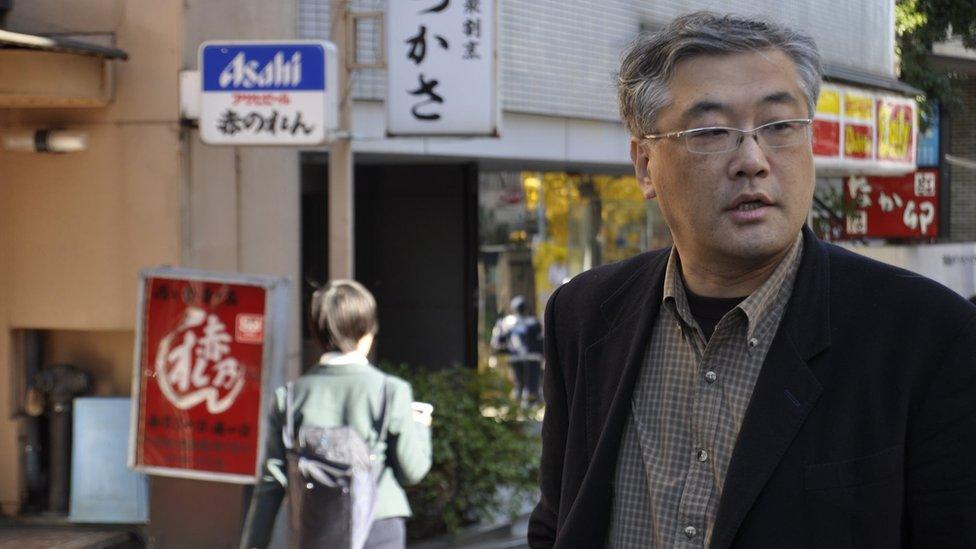
Yoji Ochiai understands why older Japanese might feel differently about a US apology
But he asks: "What's the point of bitter words? What would come out of a repeated demand for an apology."
He says the visit should instead focus on the future, and "the elimination of nuclear weapons".
But he recognises that those who lived through the hardship of war, losing entire families, might feel differently.
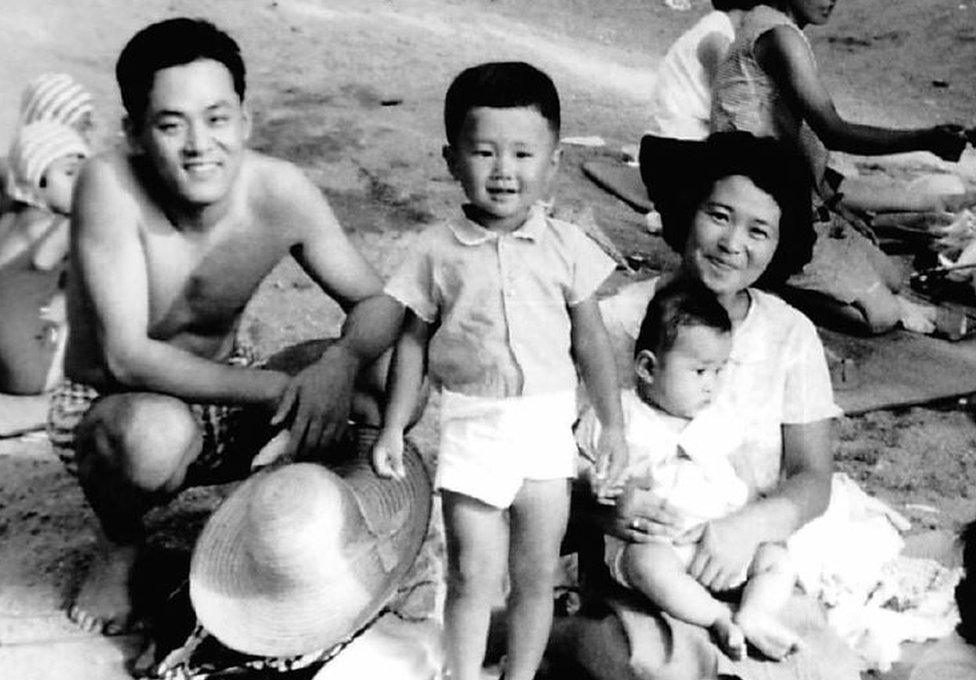
Yoji Ochiai and his parents, here on Hiroshima beach in 1966, disagree over the need for an apology
"We have to remember many still resent the mass killing of innocent civilians."
Mr Ochiai's 78-year-old father is one of those people. He believes Mr Obama should "of course" apologise.
The reason many Japanese think otherwise, he says, is simply that they did not experience the war firsthand.
Filmmaker Barry Frechette has told Shigeaki Mori's story in the film Paper Lanterns
Then of course there is the simmering debate over whether modern Japan should have to apologise for its own atrocities committed during World War Two, as is often demanded by its neighbours.
Journalist Nobuo Ikeda says Mr Obama shouldn't have to apologise "because he wasn't even born then and wasn't responsible".
But he argues that the same should be said about Mr Abe, from whom China and South Korea have demanded an apology.
Former Osaka city mayor Toru Hashimoto tweeted recently: "The best effect of President Obama's visit to Hiroshima is how Japan will not have to apologise to China and South Korea again. America will show that there is no need to apologise for the past war."
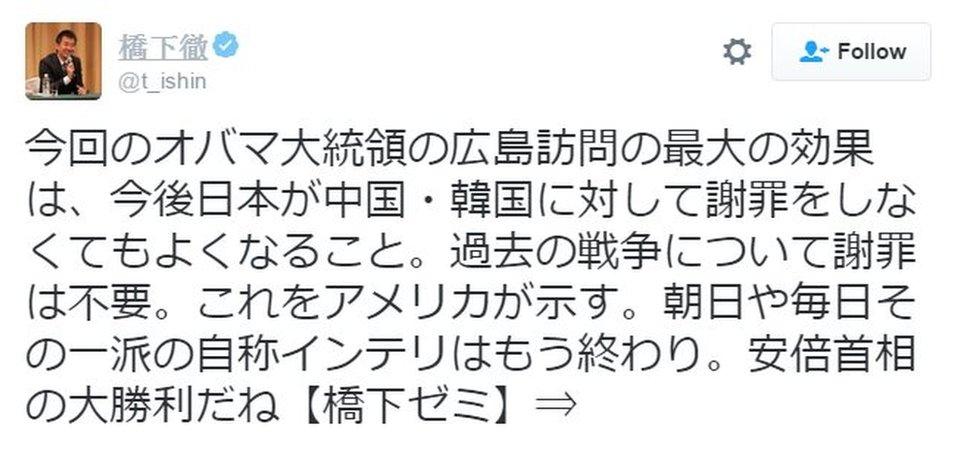
Toru Hashimoto said a lack of apology would send a message to China and South Korea
What happened 70 years ago between these two countries - once enemies but now firmly allied - will certainly be remembered during Mr Obama's time in Japan. And his historic visit to Hiroshima will certainly not ignore Japan's role as both the aggressor and victim of World War Two.
But the hope of many atomic bomb survivors is that it will ultimately contribute to their ongoing efforts to ensure "the error" of Hiroshima will never be repeated, whoever made it.